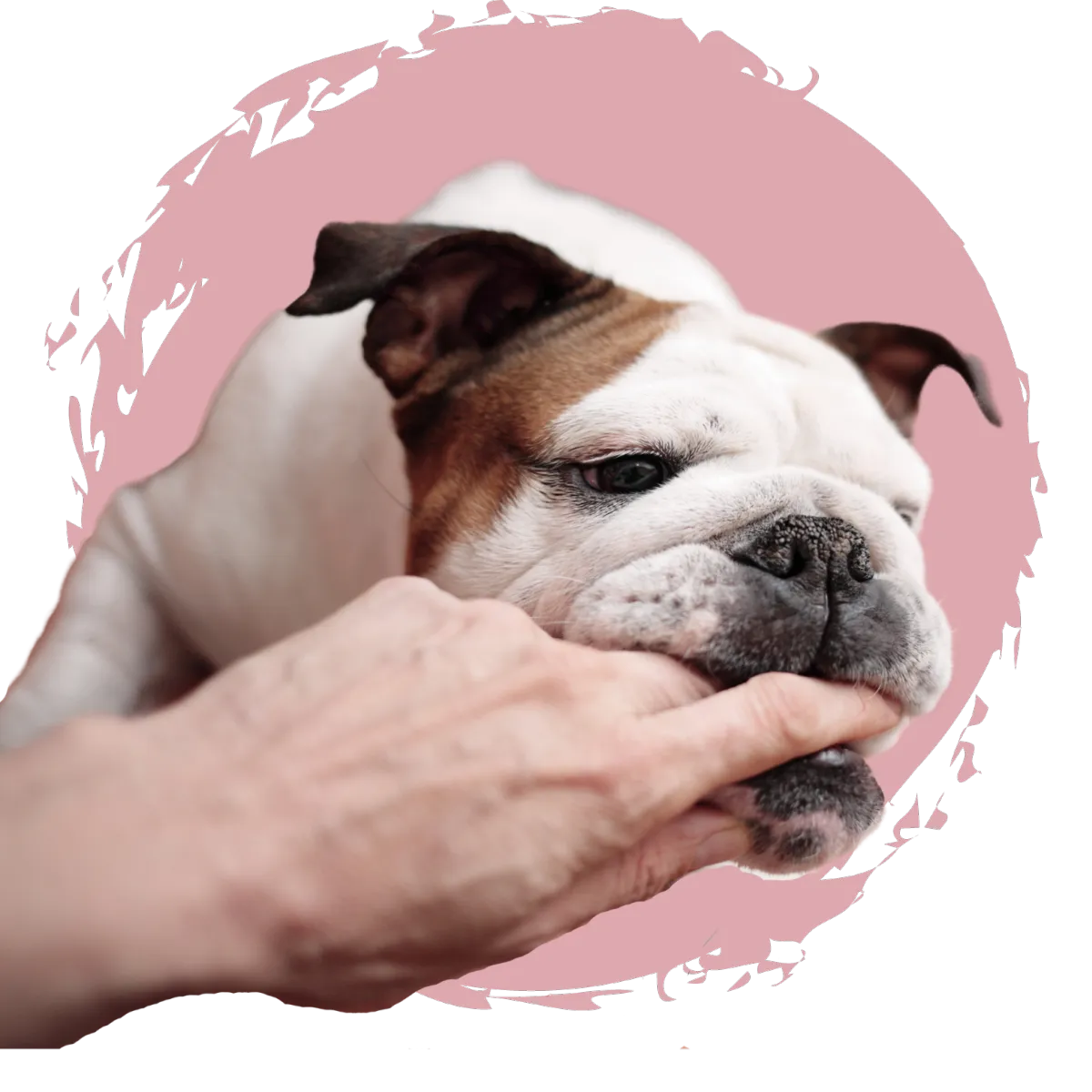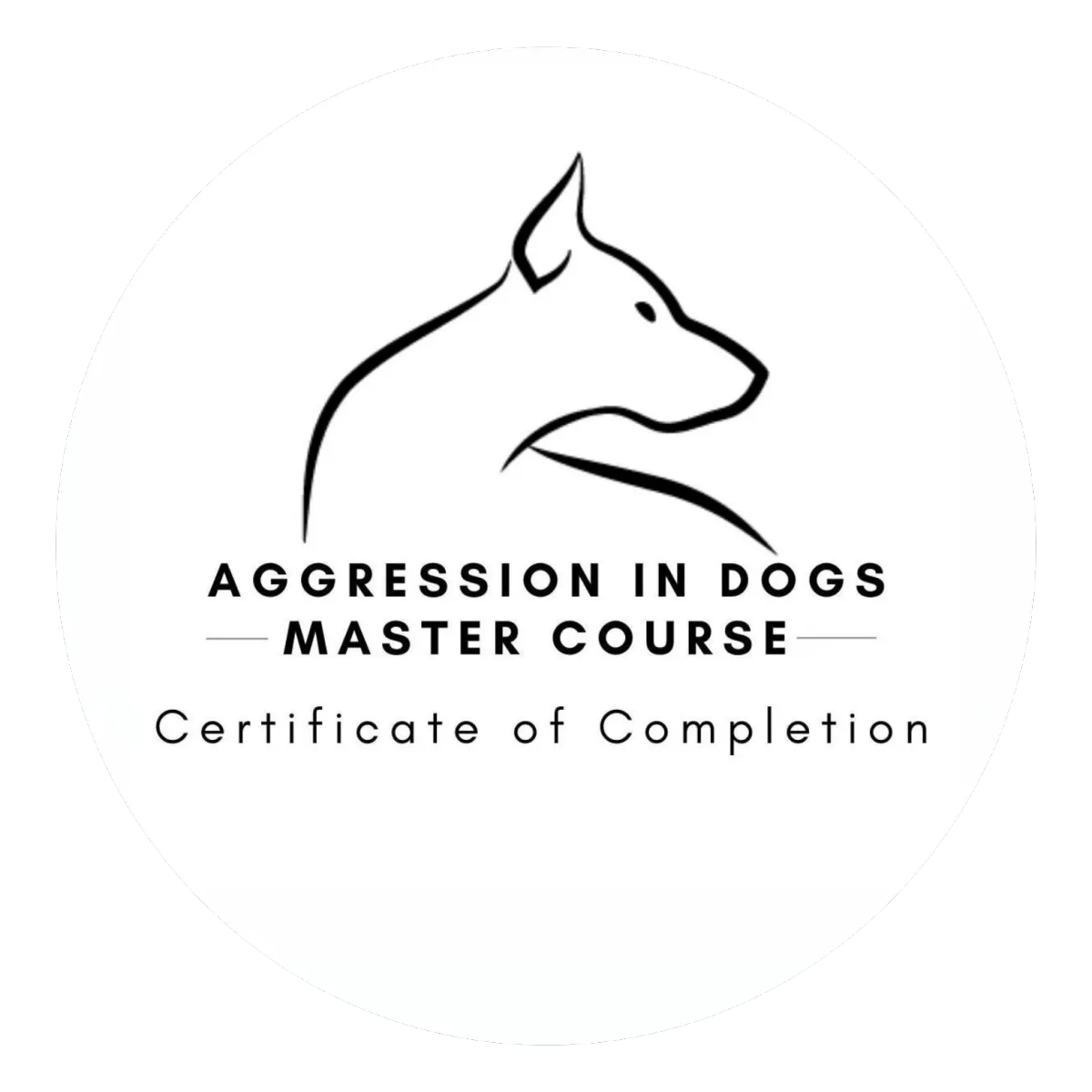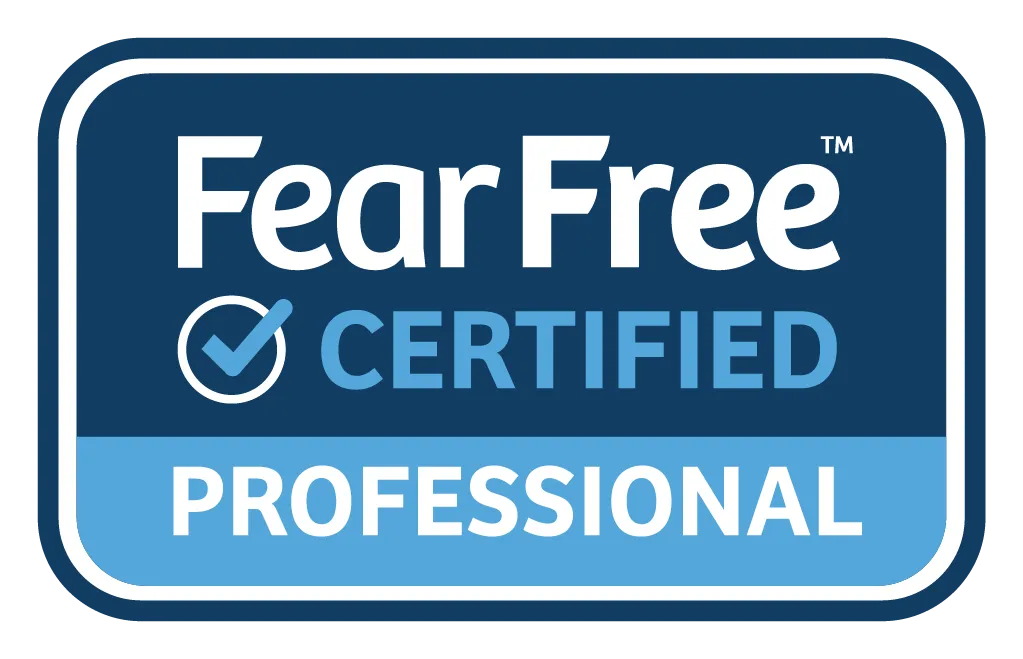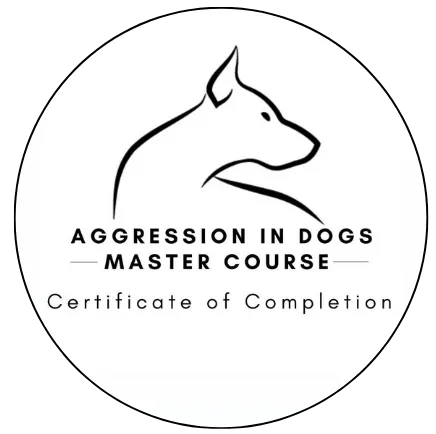Why Fluffy...
Why?
Nipping and mouthing is a common behavior, especially in puppies, and it's all about how your pup experiences the world! Just like babies put things in their mouths to learn, dogs use their mouths to explore textures, tastes, & even interact socially.

Exploration
Play behavior
Attention-seeking
Teething (particularly in puppies)
Response to overstimulation
Lack of bite inhibition
Breed-specific tendencies
Learned behavior
Communication / Social behavior
Excitement, discomfort, stress
NOTE: Dog behavior is complex; your dog may be responding this way for one or several of these reasons (or reasons not listed).
Mouthing & Nipping Myth Busters
Become a member today to unlock our full course library—and enjoy other exclusive perks!

MYTH #1:
Mouthing and nipping are signs of aggression.
Mouthing & nipping are natural behaviors in puppies and young dogs, often part of play and exploration. Playful nipping is gentle, accompanied by a wagging tail & relaxed body. Aggressive nipping is forceful, with stiff posture, growling, raised fur, & a fixed stare. Context and body language are key in determining if nipping is playful or aggressive. If unsure, consult a professional trainer or behaviorist for guidance.

MYTH #2:
Mouthing and nipping are behaviors that dogs will outgrow.
While puppies may naturally decrease their mouthing and nipping as they mature, it's crucial to actively train them to have soft mouths & learn appropriate behavior. Without intervention, these behaviors may persist into adulthood, potentially causing issues in interactions with humans & other animals. Training can help dogs understand when mouthing is acceptable & when it's not.

MYTH #3:
Ignoring mouthing and nipping will make it go away.
While ignoring mouthing and nipping can be a useful tactic, it's often not enough on its own. Dogs need clear guidance on what is acceptable, so teaching acceptable alternatives is crucial. For example, redirecting your dog to chew on toys can positively redirect their behavior. However, if your dog is nipping as a warning or showing signs of aggression, addressing underlying issues & ensuring safety is essential. Understanding the context of the behavior is key.

MYTH #4:
Punishing a dog for mouthing and nipping is effective.
When it comes to mouthing and nipping, punishing your dog is not the way to go. Just like babies explore the world with their hands, dogs (especially puppies) use their mouths to learn & communicate. Punishment can lead to fear & anxiety, potentially worsening the behavior or causing other behavioral issues. By rewarding your dog for chewing on toys or redirecting them to appropriate outlets, you can teach them what is acceptable behavior without causing emotional harm.

MYTH #5:
Mouthing and nipping are signs my dog is trying to dominate me.
Modern science has debunked the theory that dogs behave in certain ways with intent to "dominate" people. Instead, nipping/mouthing are more commonly motivated by seeking attention, play, or other natural instincts. Additionally, some breeds (like herding & terrier breeds) naturally engage in this behavior due to breed-specific traits. By recognizing & addressing the underlying motivations behind their actions, we can better understand and modify behavior through positive reinforcement & appropriate training techniques.
Ouch! My dog is mouthing & nipping...
Let's talk.
When is it time to work with us?

Persistent or excessive mouthing/nipping
Ineffective efforts to address the behavior
Signs of aggression
Signs of fear/anxiety
Interference with daily activities
Safety concerns for people & other animals
How positive reinforcement can help with mouthing & nipping:
Reduces stress & anxiety as factors
Establishes consistency with boundaries
Teaches alternative & appropriate behaviors
Implements management & redirection
Provides clear communication techniques
Builds positive play association
Contact Us:
In-Person Service Counties:
Essex, Morris, & Passaic counties
We are located in:
Parsippany-Troy Hills, NJ 07054
DISCLAIMER: Behavior modification is a collaborative process that depends on the consistent implementation of training techniques by the owner. While we specialize in fostering positive behavioral changes, no trainer can guarantee specific outcomes or "cure" a dog's behavior. As behavior is influenced by numerous factors, including environment and individual circumstances, the dog's behavior remains the responsibility of the owner.

© Copyright 2022. Born to Be Dog Training LLC.
All rights reserved.









